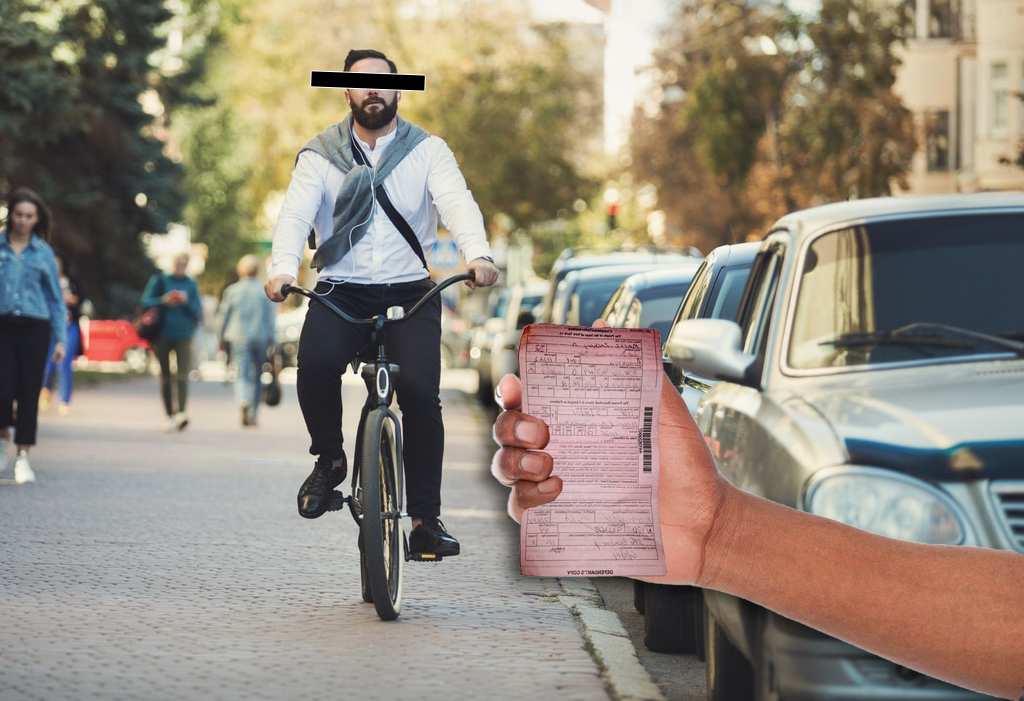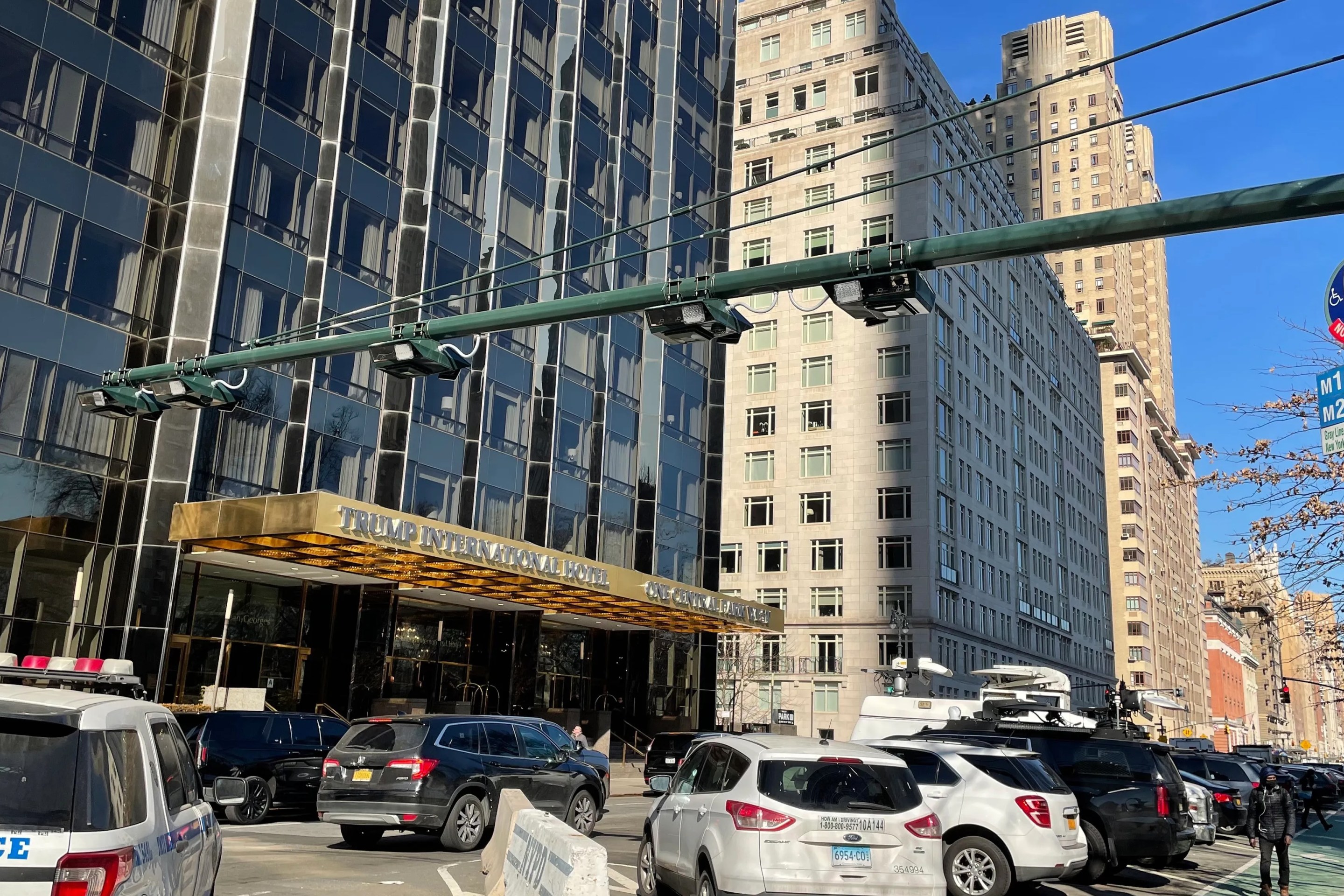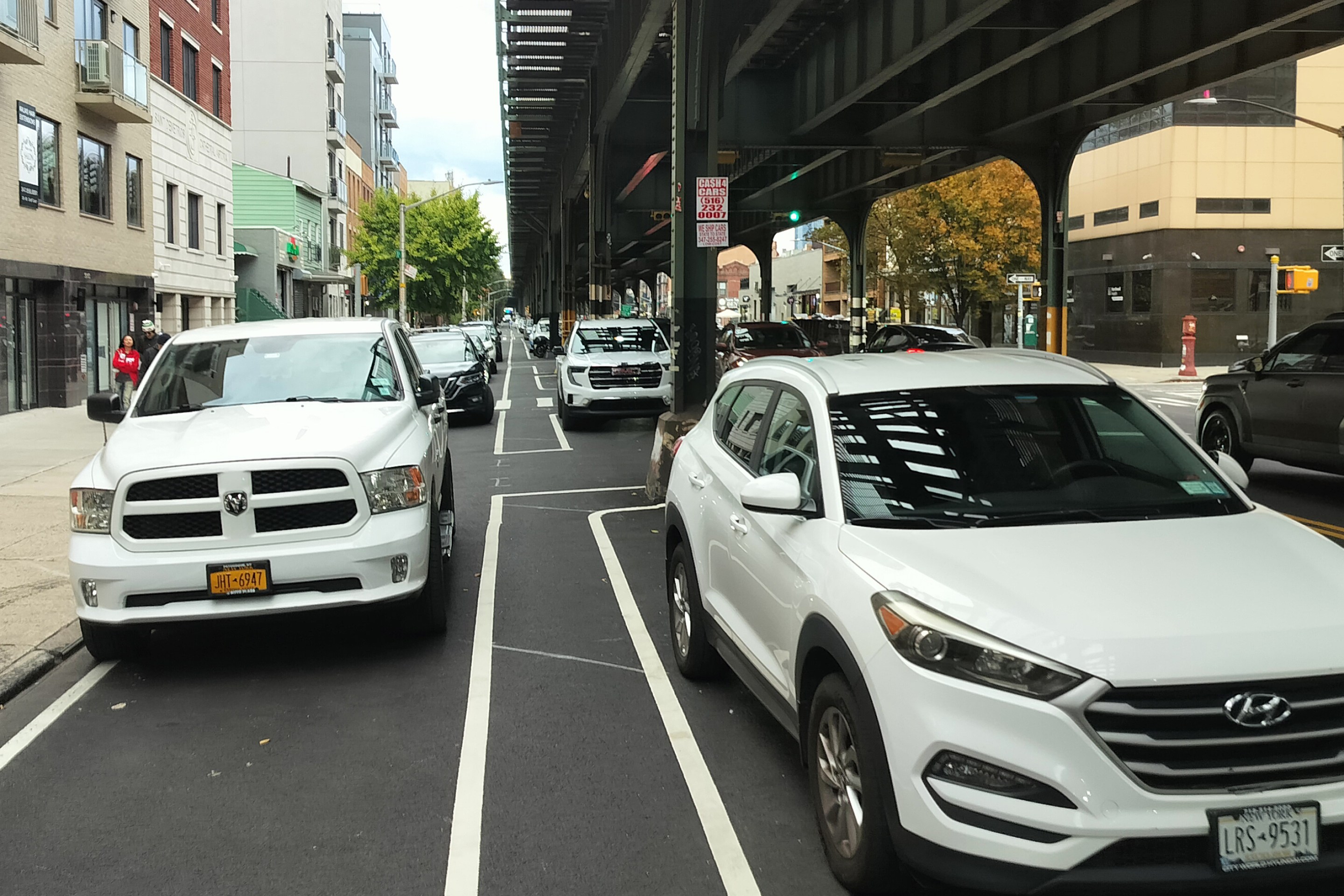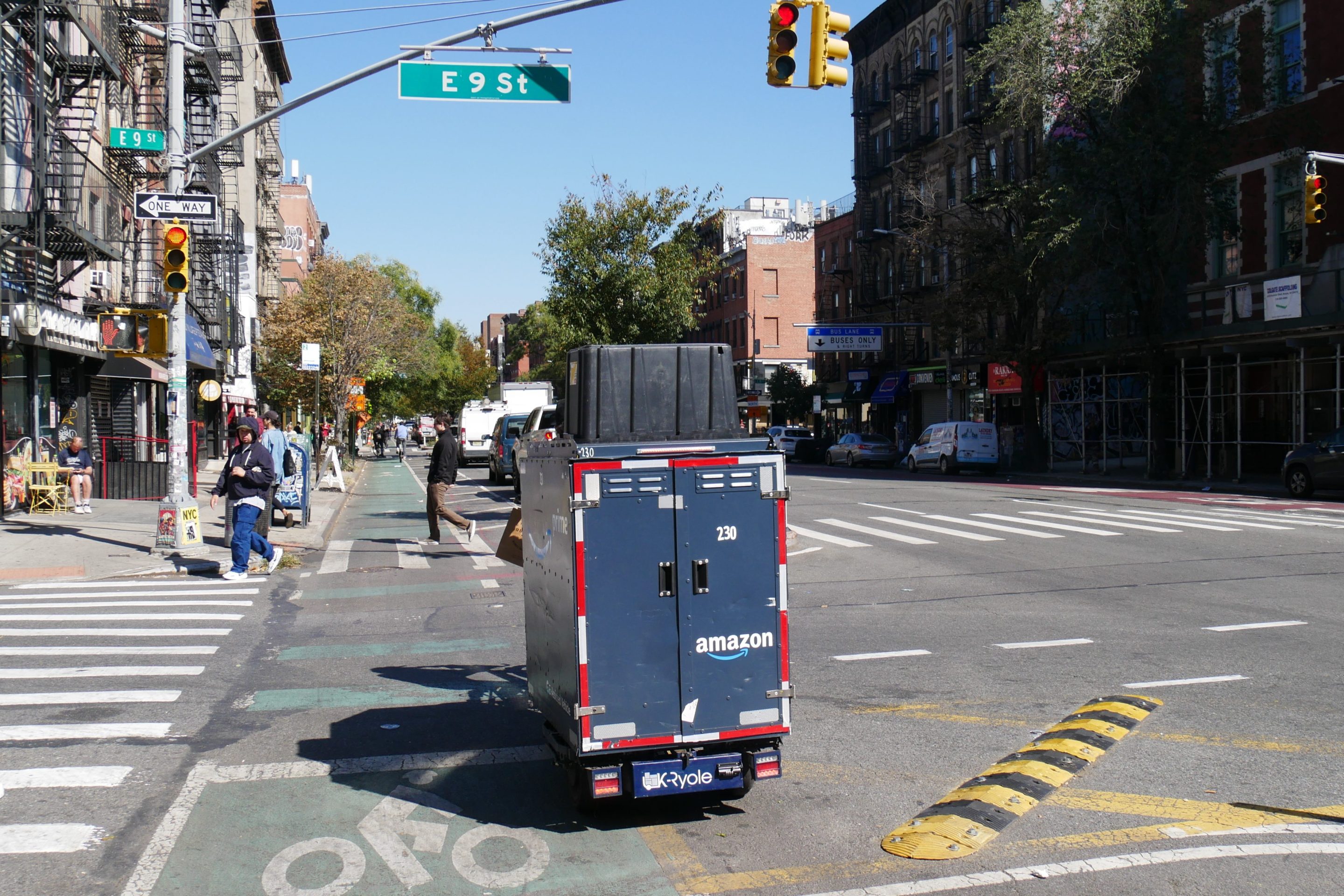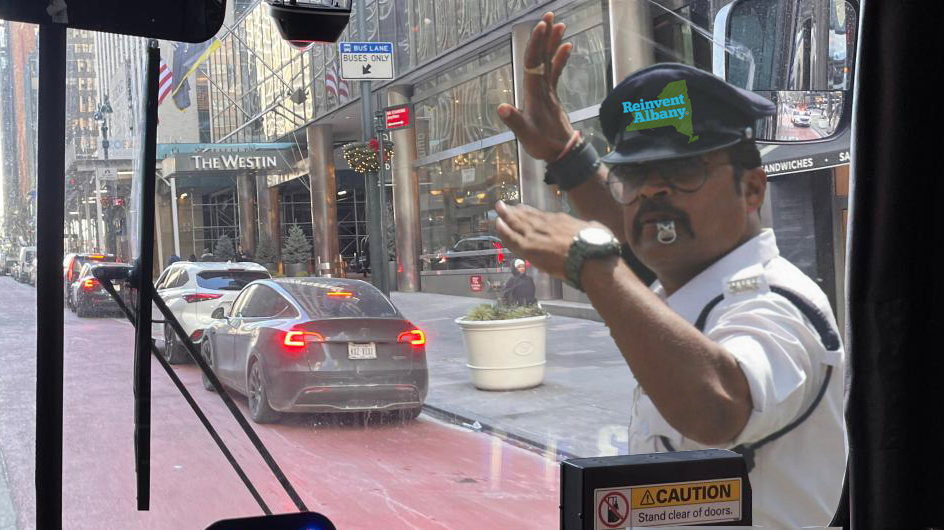 If New York were allowed to install bus lane enforcement cams, bus riders wouldn't be slowed so much by illegally parked delivery trucks.
If New York were allowed to install bus lane enforcement cams, bus riders wouldn't be slowed so much by illegally parked delivery trucks.Tucked into an otherwise bleak state budget, there's one piece of good news for transit riders. One of Governor Paterson's amendments to the state budget would authorize New York City to keep its bus lanes clear of traffic with camera enforcement.
New York can't install bus lane cameras without authorization from Albany. So far, the legislature hasn't bestowed it, despite wide-ranging support. Two years ago, Assembly transportation commmittee chair David Gantt killed an earlier version of bus camera legislation, leaving New York City bus riders stuck in traffic.
The new budget amendment would actually be an improvement over that bill. The old legislation limited bus-mounted cameras to the city's five Select Bus Service routes, while the current version allows camera enforcement on up to 50 miles of bus routes -- exactly the length of the city's current bus lane network. "It's saying that all bus lanes are important, in every borough," said Lindsey Lusher Shute, Transportation Alternatives' director of environmental campaigns.
The cameras would either be stationary or mounted on buses, recording the license plates of motorists parked or driving in bus lanes. Fines would be set at a maximum of $125.
Camera enforcement would be a real game-changer for bus riders. Dedicated lanes can mean much faster trips, but in New York, all sorts of other vehicles constantly violate bus lanes. Manhattan Borough President Scott Stringer's office conducted a study last summer which found more than 350 vehicles parked in Midtown bus lanes over a 40 hour period. The police, meanwhile, are at best too thinly stretched to spend sufficient manpower on keeping bus lanes clear, and at worst they're the source of the problem.
Because NYCDOT and the MTA appear loath to install physically separated lanes for their big-ticket bus improvements on First and Second Avenues, camera enforcement will be critical to achieving better performance.
"The most effective way to provide faster and more reliable bus service is to enforce bus lanes by cameras," said Gene Russianoff of the Straphangers Campaign. "Sporadic and limited ticketing by police just doesn't keep bus lanes moving, free of illegally stopped cars."
For the bus camera legislation to emerge intact from the budget
process, both the Assembly and the State Senate will also need to
include it in their budgets, which are expected to be released in about
three weeks. The Senate is fairly likely to include bus cameras in its
budget, said Shute, so the question is whether Gantt will keep it in
the Assembly version.
If not, bus camera legislation would
have to be passed as a stand-alone bill. Assembly Member Jonathan Bing
is already sponsoring one such bill. Advocates will be in Albany on
Wednesday, making the case for cameras.
